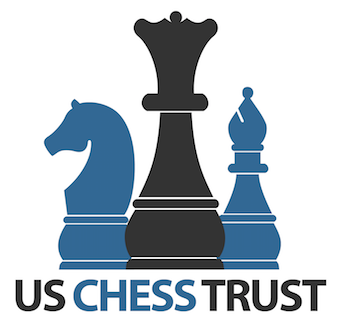Chess in Education- (Series 1, Dr. Robert Ferguson) by WIM Beatriz Marinello
CHESS IN EDUCATION – (Series 1, Dr. Robert Ferguson) By WIM Beatriz Marinello
This is a beginning of a series of articles based on chess personalities who have been contributing to the development and promotion of chess in education in the USA and the World. The series will begin with Dr. Robert Ferguson.
Although, I must admit that the first paper that I read on the subject of chess in education was in the early 80s by Mr. Rafael Tudela from Venezuela. I still have a copy of the article, which I will translate and share with you soon.
The work that I am about to present was developed by one of the pioneers of Chess in Education in the world and the United States of America.
Many of you may be familiar with Dr. Robert Fergusons chess research and his work in running the Castle Chess Camp.
Dr. Ferguson has served as the Executive Director for the American Chess School since 1991. He learned to play chess in 1958 at a Boy Scout winter camp, and it was “love at first touch” as he stated later on.
Dr. Ferguson started teaching high school in 1966. By 1968, he was taking his students to USCF rated tournaments, forming chess leagues, running chess events, and had even established a chess class that met during the school day three periods per week.
About a year after, he was hired to create and implement a program for gifted students in Bradford, it was then that he started his first major chess research, which ran from 1979-1983.
The following document is his latest work.
Only the introduction is posted here, however, you can find the article in its entirety in our Chess Articles Section.
Please feel free to submit your comments, and your personal contributions on this subject.
Educational Benefits of Chess Summary
Based on Research and Articles By Dr. Robert Ferguson
(Click for Full Article)
In modest forms thinking pervades, and to a degree rules, all activities of a human being. Why, then, are we so little concerned with the study of thought processes? Wolfgang Kohler
There is a pressing need, in the opinion of many educators, leaders, employers, and others, to teach young people how to think. Relevant to the assumed need for teaching thinking processes, this book will review two research projects and one pilot study that I designed and directed.
These studies propose that critical and creative thinking can be taught using chess as the vehicle. My 1987-88 research also asserts that chess can be utilized to develop memory.
These studies assume that chess can be employed to provide scientific verification for the theories of Dewey concerning human thought. Deweys theories of reflective thinking have persisted since 1910, but they remain largely absent of scientific validation (McGarry, 1961, p. 3).


